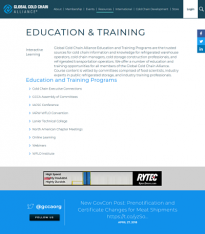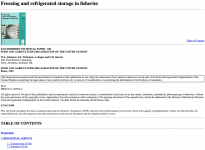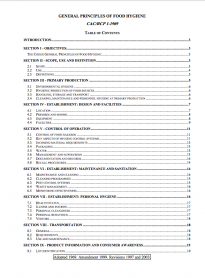Skills & Knowledge for Cold Storage
Food producers, handlers and marketers often avoid the use of cold chain due to its perceived complexity, logistical challenges, and added costs. One of the ways to address this is to promote awareness as well as local, national, regional and international capacity building, including training of trainers, in the proper use of the cold chain. Once a cold chain is in operation, then both the public and private sector need regular access to technical training on cold chain management and cold supply chain logistics. Cold storage in developing countries, which exists for exported fish products, could be used as a model for education, capacity building, and skill development for domestic producers.
Lack of skilled manpower and inadequate training is partially responsible for food wastage. Cold storage facilities are sometimes managed by inexperienced staff unaware of the latest technology and techniques in handling and storing fish and fish products. Government agencies can play a role by investing in training for both private and government operators. This includes making training and certification mandatory while also emphasizing the setting of benchmarks and standards.
Some of the key skills and knowledge cold store operators and managers require in order to prevent and reduce food loss and waste (FLW) include:
- Commodity systems assessments/hazard analysis (identifying the causes and sources of losses)
- Basic practices for reducing losses for perishable foods intended for cold storage
- Technical cold chain subjects (post-harvest handling, refrigeration, cold storage, cold transport, food processing, etc.)
- Management topics (managing labour, equipment, finances, risk, marketing, etc.)
- Logistics (interactive complexities of managing a cold chain system)
- Engineering (including design, modifications, repairs, maintenance of cold store technologies)
- Food safety issues (including the potential impact of poor food safety)
- Environmental issues
- Energy efficiency
National authorities such as Health Inspectorates and Food Standard Agencies require similar skills and knowledge to be able to implement extension for and the enforcement of food law, regulations, standards and certification.
Key Publications
Entry point to Global Cold Chain Alliance Education and Training Programs on cold chain information and knowledge for refrigerated warehouse operators, cold chain managers, cold storage construction professionals, and refrigerated transportation operators. | |
Freezing and Refrigerated Storage in Fisheries This FAO publication provides an introduction to the operations and equipment used in fish freezing and cold storage on shore and sea, and gives information on applying low temperatures to reduce deterioration of quality. | |
General Principles of Food Hygiene CAC/RCP 1-1969 Complimentary to the Code of Practice for Fish and Fishery Products, these General Principles lay a foundation for ensuring food hygiene and should be used in conjunction with each specific code of hygienic practice. |
More Resources
More Resources
29 June 2024
27 February 2024
31 October 2023














